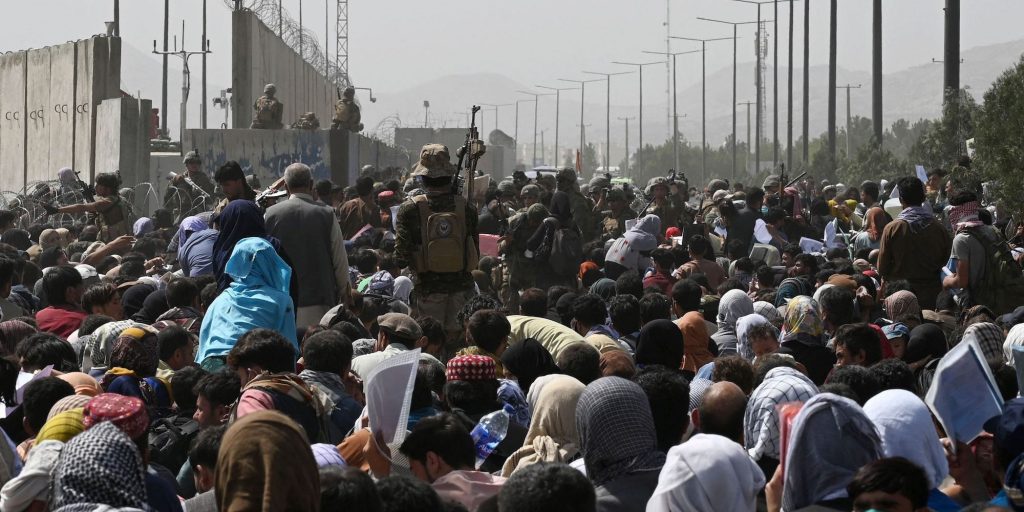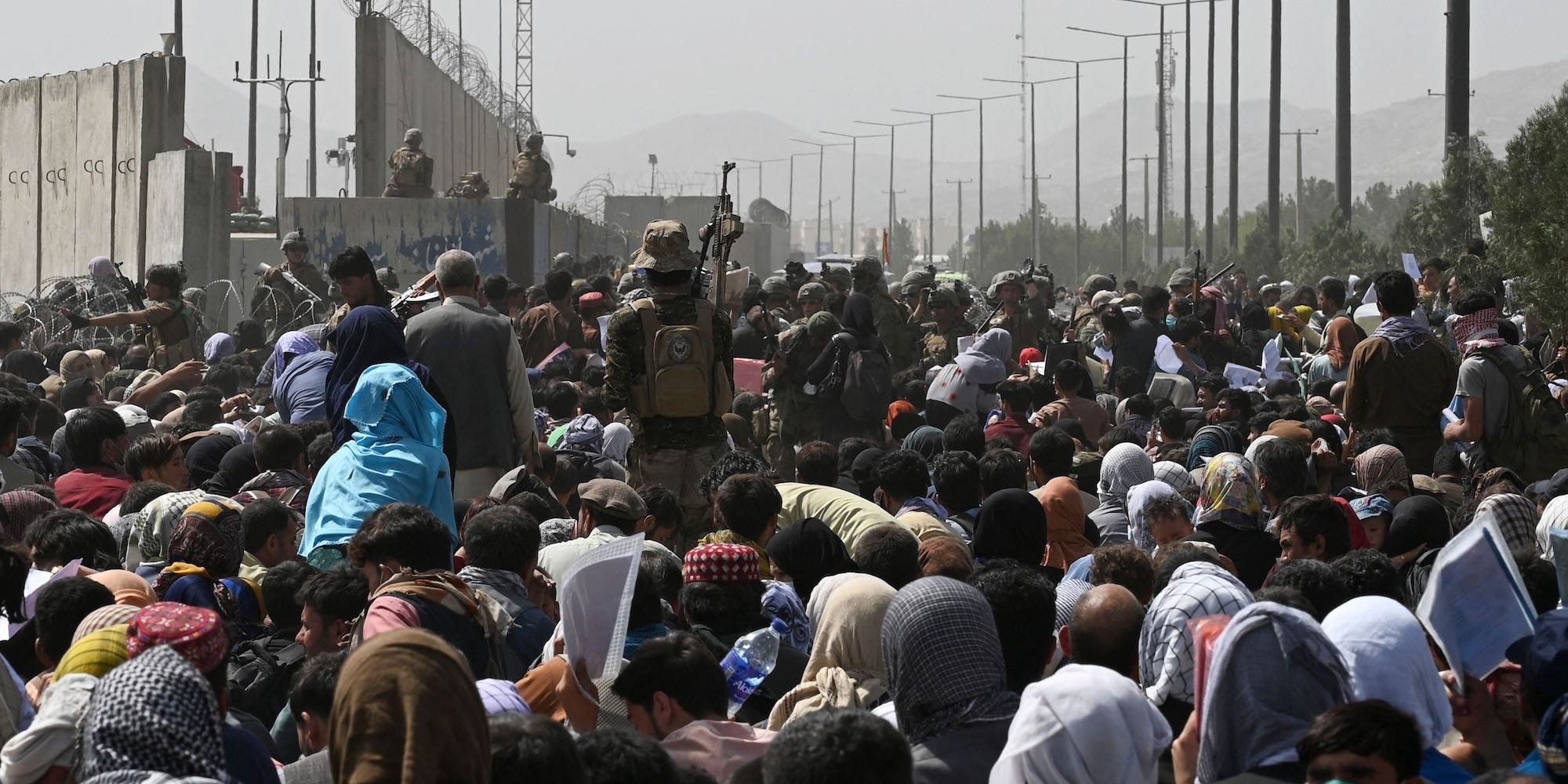
WAKIL KOHSAR/AFP via Getty
- European leaders expressed shock and dismay at the US's withdrawal from Afghanistan in August.
- Their reaction may reflect concern about another wave of migration like the one that roiled Europe in 2015.
- European leaders now appear to be taking steps to head off another influx of displaced people.
The US's withdrawal from Afghanistan in mid-August was met with disbelief and anger in Europe.
"The early withdrawal was a serious and far-reaching miscalculation by the current administration," Norbert Röttgen, chairman of the German parliament's foreign relations committee, said that month.
Charles Michel, the president of the European Council, the EU's policy-setting body, said in early September that the crisis in Afghanistan "only reinforces and consolidates" his support for European "strategic autonomy" from the US.
Michel's remarks highlights European countries' concern about what will follow the US withdrawal from Afghanistan, and they have good reason to be worried.
In 2015, European leaders faced an influx of people fleeing years of war in Syria. Millions of people left that country in search of a better life in Europe, where leaders scrambled to fend them off, integrate them as best as possible, or redirect them to neighboring countries. The policy of open borders inside the EU – a core principle of the bloc – was tarnished as public dissatisfaction rose.
Six years later, European leaders face a repeat of that in the fallout from Afghanistan.
Look to Syria
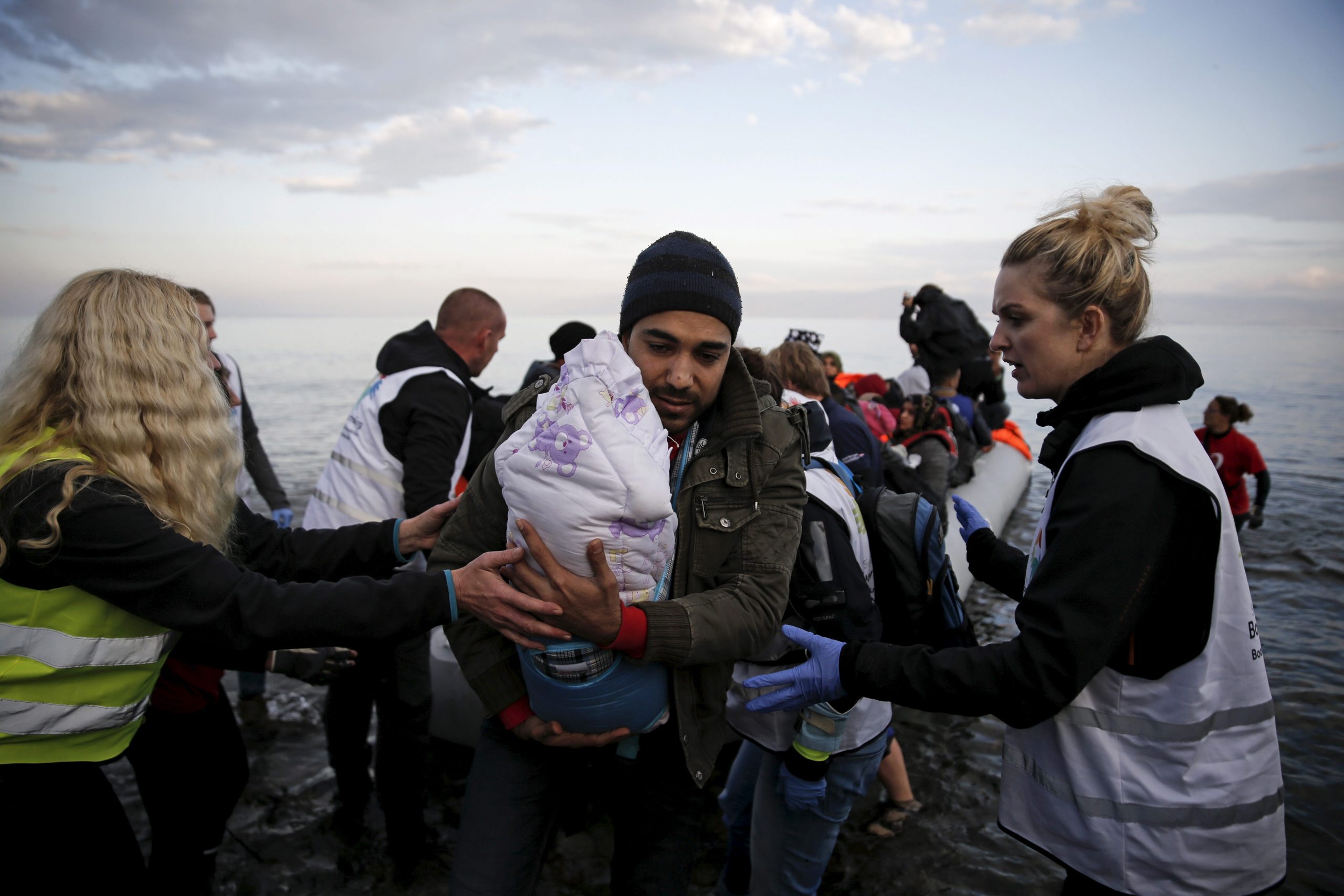
Alkis Konstantinidis
The Syrian civil war began in 2011, and by 2018 some 6.6 million Syrians had fled the country, according to UNHCR. The majority were received by neighboring countries, but a large number of them headed to Europe.
More than 1.3 million people made asylum claims in Europe in 2015 alone, the majority of them from Syria and Afghanistan. At the peak of the crisis, roughly 1,600 people were arriving on Greek islands daily.
German Chancellor Angela Merkel famously allowed hundreds of thousands of Syrian refugees into Germany. Her decision did not cause the political earthquake many expected at the time, but Germany was the exception.
Migration was a major issue surrounding the Brexit debate. Despite small numbers of migrants or refugees actually reaching the UK, the issue influenced to the referendum's outcome.
The influx of migrants and refugees also ignited the rise of far-right and anti-establishment parties throughout the continent. In Sweden, Germany, and Greece such parties entered parliaments and even assumed power, as in Italy. Often, their agenda was not just anti-migration but anti-EU, posing a mortal danger to the bloc.
The absence of a common European migration and asylum policy soured relations between southern and southeastern European countries and their central and northern counterparts. Those tensions helped the appeal of anti-establishment parties.
In 2016, under an agreement between the EU and Turkey, the bloc paid Turkey 3 billion euros to keep about 3.5 million Syrian refugees in its borders.
The agreement reduced the number of people reaching the continent. Yet it also outsourced European security to Turkey, which has since weaponized the migrants, using them as leverage to advance its goals in the region.
2015 all over again?
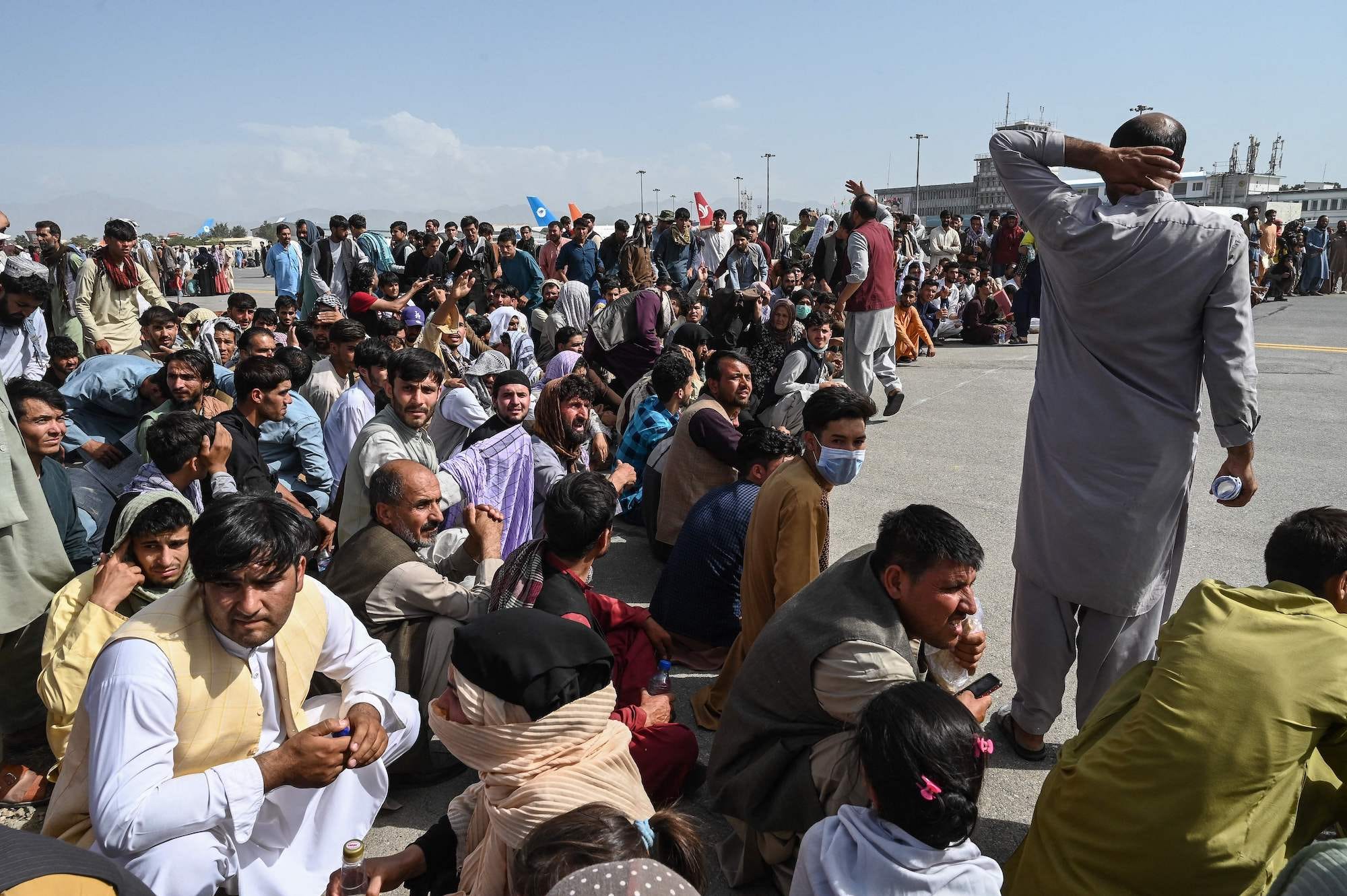
WAKIL KOHSAR/AFP via Getty
Afghanistan could very well create a repeat of the migration from Syria.
The Taliban have not shown that they can run the country competently or refrain from wanton cruelty. They also have to deal with what UN Secretary General António Guterres has called an imminent "humanitarian catastrophe": the 18 million Afghans, half of the country's population, who need immediate humanitarian assistance.
The UN Development Program estimates that Afghanistan's poverty rate, already a staggering 72%, will skyrocket to 97% within a year.
The US recently allowed for some aid to start flowing to the country and the Taliban might also get support from China. This may not be enough.
The EU, the largest donor of development aid in the world, has made any support contingent on the Taliban's respect for human rights - a dubious proposition. Meanwhile, Afghan financial assets remain largely frozen.
The numbers of Afghans fleeing the country may come to dwarf those who fled Syria years ago.
Europe shows its teeth
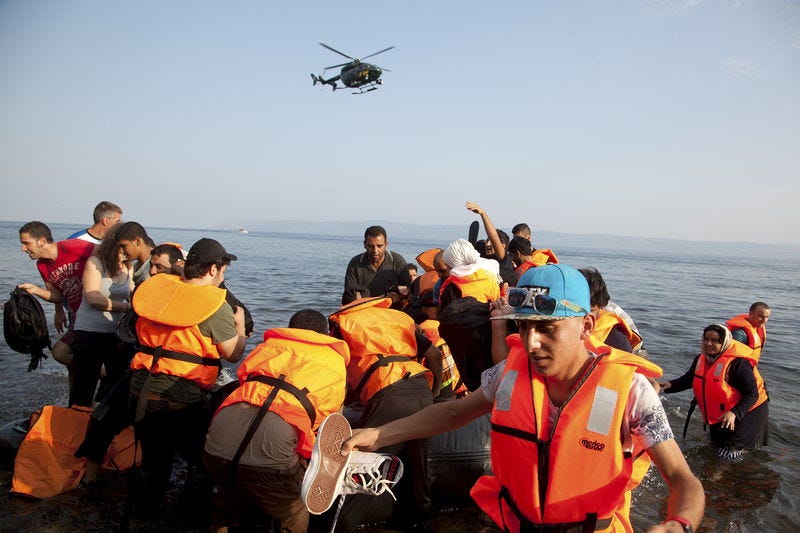
Thomson Reuters
Europeans are frustrated at the US's apparent disregard for the challenge that would present. But European leaders now seem to understand the disruptive effects of sudden, massive inflows of migrants and refugees on their societies and on their approval ratings and are working to prepare this time around.
In a summit in Athens on September 17, the heads of government of EU's Mediterranean countries along with Ursula von der Leyen, the president of the European Commission, discussed migration and the Afghan crisis.
"We will not allow a repeat of the uncontrolled migration flows that we experienced in 2015," Greek Prime Minister Kyriakos Mitsotakis said at the summit.
Times have changed, according to George Pagoulatos, director general of the Hellenic Foundation for European and Security Policy.
"2021 is no 2015. As in 2015, the EU continues to lack a common migration and asylum policy. However, this time round no member state appears to be willing to open its borders to large migrant and refugee flows from Afghanistan, despite the humanitarian crisis unfolding under the Taliban," Pagoulatos told Insider.
In recent years, the EU has significantly reinforced Frontex, the bloc's border and coast-guard agency. Frontex's annual budget has increased from 143 million euros in 2015 to 543 million euros in 2021.
"The EU emphasis now is on protecting external borders, as the deployment of Frontex forces also demonstrates," Pagoulatos said.
The 2015 migrant crisis pushed the EU to its limits, and it was left scathed. The bloc lost a member, saw far-right political parties become entrenched, and relinquished a core principle.
Europe now looks like it's preparing to prevent another such crisis from having the same impact. Europeans also now firmly realize where their interests and US interests do not align. That lingering frustration may only further weaken the transatlantic relationship.
